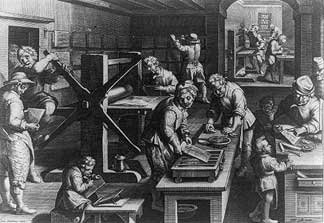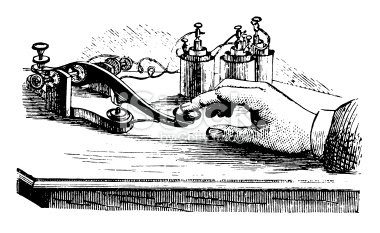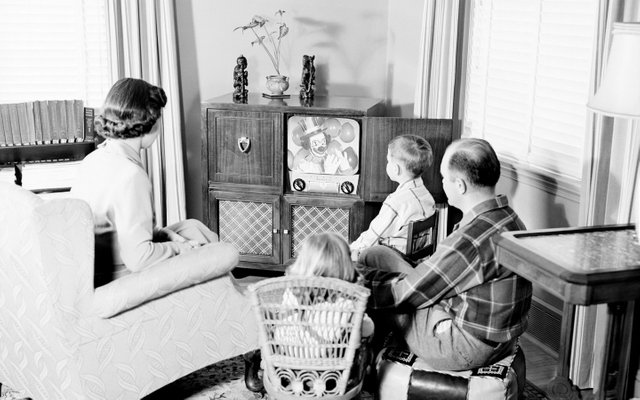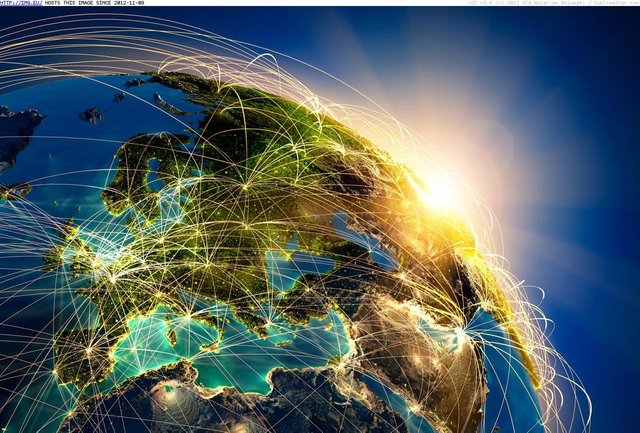"All electrical means of communication are but extensions of the human faculties through space. "

Worldpeace is a big assumption to make, especially given the tumultuous times we are living. Just about every piece of our lives seems to have some kind of inevitable doom: from Global financial crisis, to wars, famine, global warming, natural disasters, diseases. How can one communication system bring about Worldpeace?
Every new technological breakthrough in communication brought about the measurement of space and time. How much space it would cover and how much time it would take to cover that space. After the discovery of the telephone, electrical feeds that manifested itself into sounds, from New York to San Franscisco took seconds; in comparison to Steem engine transportation that took about 10 or more days to reach. Television brought about the inclusion of more of our sensory skills. from sounds came together images. Communication then, transcended our human faculty through space and time at a faster rate than could the physical plane of our reality.
But fostering peace from efficiency was not always best. We can see that in many occasions after these breakthroughs; tremendous conflicts would arise.

The printing press was suppose to get Catholic hegemony but what we got was the opposite,
"The invention of the printing press removed control of written material from the Catholic Church and made it difficult for the church to inhibit the spread of what it regarded as heretical ideas. The Protestant Reformation and the 30 years War."

The more expansive communication becomes, the more argumentative we get. Yet people still felt the need that all these new technological innovations would foster in an age of international peace.
The Telegraph

Authors Charles F. Briggs and Augustus Maverick wrote in their 1858 book "The Story of the Telegraph":
"Of all the marvelous achievements of modern science the electric telegraph is transcendentally the greatest and most serviceable to mankind … The whole earth will be belted with the electric current, palpitating with human thoughts and emotions … How potent a power, then, is the telegraphic destined to become in the civilization of the world! This binds together by a vital cord all the nations of the earth. It is impossible that old prejudices and hostilities should longer exist, while such an instrument has been created for an exchange of thought between all the nations of the earth."
Telephone

AT&T chief engineer and Electrical Review writer John J. Carty projected in his "Prophets Column" in 1891:
"Someday we will build up a world telephone system, making necessary to all peoples the use of a common language or common understanding of languages, which will join all the people of the earth into one brotherhood. There will be heard throughout the earth a great voice coming out of the ether which will proclaim, 'Peace on earth, good will towards men.'"
Television

Television inventor Philo T. Farnsworth thought television would engender world peace:
“If we were able to see people in other countries and learn about our differences, why would there be any misunderstandings? War would be a thing of the past.”
Internet

Nicholas Negroponte, head of the Massachusetts Institute of Technology's Media Laboratory, told an information technology conference in Brussels on Tuesday that the potential of the global computer network has actually been vastly underrated.
"I have never seen people miss the scale of what's going on as badly as they are doing it now," he said, predicting that the Internet would do no less than bring world peace by breaking down national borders. Twenty years from now, he said, children who are used to finding out about other countries through the click of a mouse "are not going to know what nationalism is."
I argue however, that the latest incarnation of communicative breakthroughs (i.e the Internet and more specifically Steemit) broke away from the measuring paradigm of space and time, and into value and censorship--the new measuring paradigm to Communication. As the Steemit whitepages say:
The Internet would lose the vast majority of its value if all links among content were
removed. It is the relationship among web pages that allows Google to identify the best
apple pie recipe among the 16 million results. Without the links the only information
Google would have is word frequency.
Links can take many forms and have adapted over time. Every time a user votes on content
in a social network they add a link between themselves and the content. This in turn links
the consumer to the producer through the content. The more links a network has the more
valuable the information becomes. It is the relative and intentional connectedness of
information that gives it value.
A social network can maximize the value extracted from a set of content by maximizing the
quantity and quality of links. Curating content is expensive and time consuming while being
near impossible for computers to perform in the absence of links. Steem rewards users who
are among the first to find and link to new content.
By incentivising curation the Steem network is able to use automated algorithms to extract
the most valuable information from a massive amount of content.
Steem is a decentralized network that is operated by miners in jurisdictions around the
world. All user actions are publicly recorded on the blockchain, and can be publicly
verified. This means that there is no single entity that can censor content that is valued by
STEEM holders.
Individual websites such as steemit.com may censor content on their particular site, but
content published on the blockchain is inherently broadcast traffic and mirrors all around
the world may continue to make it available.
Freedom of speech is the foundation of all other liberties and any infringement upon
freedom of speech undermines the only peaceful means of reaching consensus: discussion.
Without free discussion voters cannot be fully informed, and uninformed voters are a
greater threat to society than losing the right to vote. Censorship is a means of stealing votes
42 of 44 through limiting public discourse. Steem is committed to enabling free speech and building
a free society.
The point I am trying to make is that as soon as you include some powerful voice to dictate the value of certain information while undermining others, there cannot be a true free peaceful society. Much of what we have seen lately has been a complete shutdown of that freedom.
However, I am a bit more optimistic in that under this decentralized and transparent system, both value (attained by the free-market) and anti-censorship (attained by blockchain) will ultimately generate the Worldpeace that so many in the past quickly envisioned. The worldpeace may not come now or in a couple of years; but when more and more ecosystem(s) like Steemit surface, then the value of information will continue to grow infinitely and the highly decentralized structure will slowly rid of the guillotine in our society--censorship.
Great post. It's pretty amazing how that all happened hey haha. We expect new technology to branch the gap but sometimes it only makes it worse and amps people up into angry mobs.
Downvoting a post can decrease pending rewards and make it less visible. Common reasons:
Submit
Yes I agree with you wholeheartedly. I believe the chaos ensued because the technologies in place were always centralized; low entropic organizing has severe limitations.
Under the paradigm of the internet and everything from it, the inversion is in place. I'm a fan of decentralization. And I have a feeling platforms like Steemit, while it may have its argumentative side, is far different than the kind we had before. Because of value and ant-censorship brought to you by the (free market and blockchain).
Bottom line: High entropy will always prevail.
Downvoting a post can decrease pending rewards and make it less visible. Common reasons:
Submit